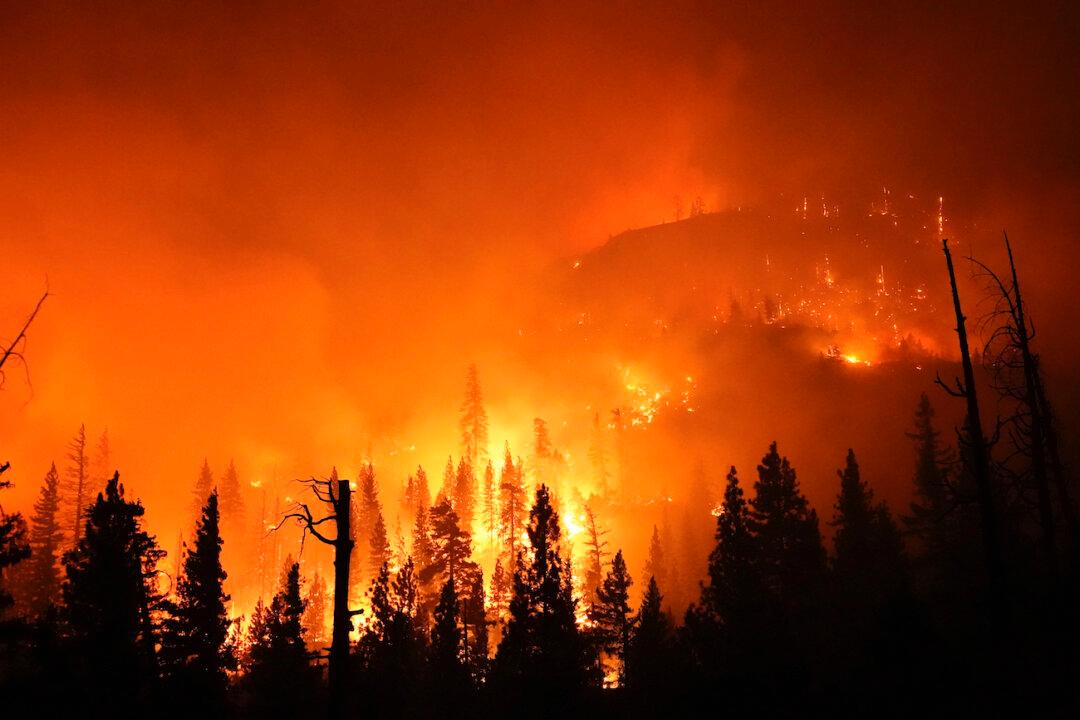SHAVER LAKE, Calif.—New wildfires ravaged bone-dry California during a scorching Labor Day weekend that saw a dramatic airlift of more than 200 people trapped by flames and ended with the state’s largest utility turning off power to 172,000 customers to try to prevent its power lines and other equipment from sparking more fires.
California is heading into what traditionally is the teeth of the wildfire season, and already it has set a record with 2 million acres burned this year. The previous record was set just two years ago and included the deadliest wildfire in state history—the Camp Fire that swept through the community of Paradise and killed 85 people.





